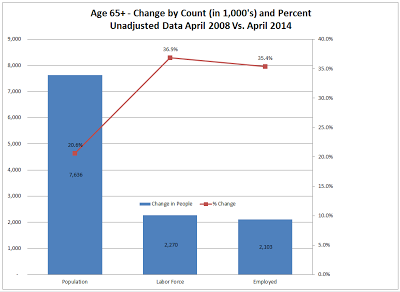I was doing some spring cleaning this past weekend, (on a mid-May day that was so cold it hardly felt like Spring), and discovered in a not-touched-in-a-long-time pile of books not only a rare first edition print copy of original The 8 Man Rotation book on Sports and HR, but also one of my favorites of the last few years, Chuck Klosterman's excellent book titled 'IV: A Decade of Curious People and Dangerous Ideas'.
On Saturday evening when resting up from my busy day of charitable volunteer work, rescuing stray animals, and helping little old ladies cross the road, I decided to thumb through and re-read some of the Klosterman book, as it is a collection of essays, it is kind of easy to simply jump in at any part that seems interesting. As he is a pop culture observer and critic, many of the essays are about, well, pop culture, and when re-reading an essay titled 'Cultural Betrayal', I had two thoughts. One, was I really get this idea and it makes sense. And the second - I am pretty sure I blogged about this essay at some point. The fact that I had dog-eared the page and underlined a couple of sentences in the piece was another giveaway.
So I checked the blog archives and sure enough I did riff on the'Cultural Betrayal' essay with a blog post titled after a concept from the piece, 'Culture Can't Be Wrong', which ran back in February 2010. It was a short piece about cultural elitism, mainly framed through this idea, (which was kind of common in our little HR space back in 2010): that somehow the folks that were actively blogging, tweeting, patting each other on the back for how 'with it' we all liked to think we were somehow 'better' than the ignorant or lazy folks that were not on the bandwagon with us. There is also a solid take on Farmville.
The blog post from 2010 also got several really interesting and well-thought out comments, (which on this blog anyway almost never happens anymore, despite there being at least 4x or 5x more readers today than there was in 2010. That is a topic for another day.).
So for this mid-May day in 2014 I am going to run the piece again, mainly because it is interesting to me to see what we were talking about almost four-and-a-half years ago, and two, since despite a couple of the specific references being a little dated, I think the main points still hold up. Here is the full post from 2010:
Culture Can't Be Wrong - February 26, 2010
On the way to an event last week I read Chuck Klosterman's excellent book titled 'IV: A Decade of Curious People and Dangerous Ideas'. 
One of the articles 'Cultural Betrayal', contained the observation 'Culture can't be wrong'. The main point of the piece is the idea that if 25 Million people watch 'American Idol' each week, and you can't see the point and despise the show, that the 25 Million people are not 'wrong'. You may not share their tastes or affinity for pop singing, or karaoke-bar style performances, but in a way you are the one that is 'wrong'.
What does all this have to do with technology, workforce, or anything remotely near what we typically cover on this site?
Not much probably, but let me take a crack at what I see as the connection, a take on technology and perhaps even social media elitism. At times in the new media echo chamber there is a kind of self and mutual reverential society happening. Like we are all in some cool, elite clique and boy the folks that have not jumped on board, or don't 'get it' are somehow not in our cool kids group.
So here is my take:
You are not 'better' or smarter than your buddy who has never heard of Twitter while you are sitting feeling cool about hitting the 1,000, 2,000 or whatever follower mark that is currently consuming your thoughts.
You are not of more value to society simply because you refuse to play 'Farmville' on Facebook. Something like 60 million people play Farmville. Some of those people are your friends, co-workers, nurses, firefighters, teachers, and coaches. 60 million people!
How many of your suppliers, customers, and shareholders are in that group? How many of the people that can directly and impactfully influence your organization's success are in a group that participates in a game that you may have shown public disdain for?
Failing to understand that group shows a marked lack of awareness and appreciation for what is actually happening in the world. Ignoring that group will result in missed opportunity. Insulting that group (and you know some of you do) could be a disastrous error.
Stop acting like a smart-aleck social media smartypants. Don't be an elitist. Don't be that person. Don't.
Culture can't be wrong.
--------------------------------------------------------------
What did you think? Does this still apply in 2014? Are we still caught up in our little echo chamber?
Have a great week!

 Steve
Steve



